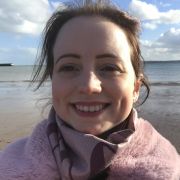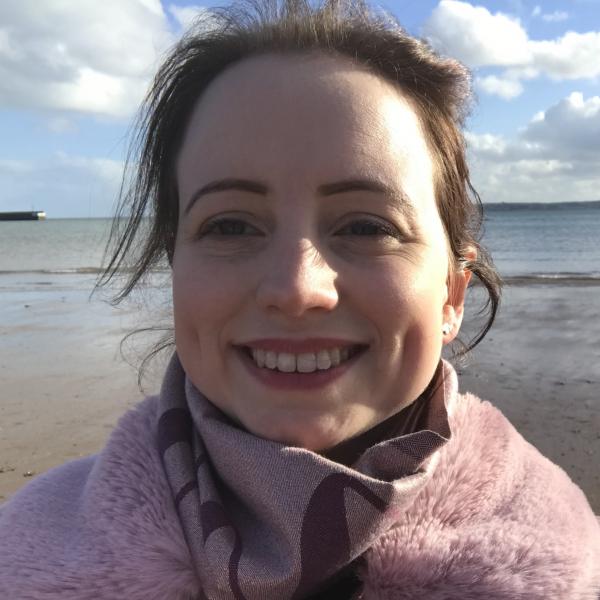Dr Lauren Powell
BSc (Hons), MSc, PhD, SFHEA
School of Education
Senior Lecturer in Psychology and Education


+44 114 222 8179
Full contact details
School of Education
The Wave
2 Whitham Road
Sheffield
S10 2AH
- Research interests
-
Lauren’s research foregrounds the voices of neurodivergent individuals through innovative, participatory, and co-produced methodologies that centre lived experience. Her work challenges deficit-based models of neurodivergence and traditional psychoeducation, advocating instead for approaches that affirm neurodivergence as a natural and valuable part of human diversity.
A major strand of Lauren’s work focuses on ensuring that children and young people are not spoken for through proxies but are meaningfully informed about their neurodivergence in ways that are age-appropriate, accessible, and strengths-based. She has led the co-production of two nationally adopted psychoeducational resources:
- The ADHD Hero Activity Book, co-created with ADHD children and young people
- Learning About Autism, co-created with autistic children and young people
These resources are now used across the UK by NHS services, schools, local authorities, and third-sector organisations.
Increasingly, Lauren’s research contributes directly to national policy. She is a co-author of several Child of the North parliamentary reports, including those addressing the autism assessment and support crisis, SEND/alternative provisions in the UK, and early years inequalities. She led the authorship of the 2024 early years report and co-authored its 2025 update , both part of the national A Country That Works for All Children and Young People campaign. Lauren is also a co-author of a Health Equity North parliamentary report examining health inequities affecting girls and women in the North of England, with a particular focus on neurodivergent girls and women. Additionally, she is a named contributor to the 2025 Time to Deliver: The Autism Act 2009 and the New Autism Strategy review.
Drawing on both her research and her lived experience as a late-diagnosed autistic and ADHD academic woman, Lauren delivers training and consultancy for universities, local authorities, and schools. She supports organisations to embed neuroinclusive practices that affirm identity, reduce barriers to participation, and disrupt ableist assumptions in education and research.
Lauren welcomes enquiries from prospective doctoral students interested in qualitative, participatory, and co-produced research on topics such as:
- The development and evaluation of psychoeducational resources and interventions for neurodivergent children and young people, and the psychoeducational needs of parents, carers, and professionals
- Transitions across the lives of neurodivergent children and young people (e.g., primary to secondary school, or into higher education)
- The lived experiences of autistic and/or ADHD girls and women
- The motivations, pathways, and experiences of adults seeking an ADHD and/or autism diagnosis
- Publications
-
Journal articles
- Experiences of Young People, Parents and Delivery Staff of the Social Prescribing Intervention ‘Safety Nets’: A Qualitative Investigation. International Journal of Mental Health Nursing, 35(1).


- Supporting mainstream school staff in England to meet the needs and address educational inequalities in autistic girls. International Journal of Inclusive Education. View this article in WRRO


- Helping young people find the words: Exploring the impact of psychoeducational materials for neurodivergent young people. Neurodiversity, 3. View this article in WRRO


- We’re not your empathy exercise: reclaiming co-production in neurodivergent research and practice. Neurodiversity, 3. View this article in WRRO


- The impact of psychoeducation interventions on social skills in autistic 5–12-year-olds: a narrative systematic review. Neurodiversity, 3. View this article in WRRO


- Working in partnership to support children and young people with selective mutism: a reflexive thematic analysis from parent and teacher perspectives. Journal of Research in Special Educational Needs. View this article in WRRO


- Current levels of knowledge and the impact of psychoeducational interventions on understandings of paediatric OCD among school staff: a systematic narrative review. Neurodiversity, 3. View this article in WRRO


- Why language matters: A qualitative inquiry into the implications of language used during provider-patient interactions on university students’ perceptions and understandings of their own mental health. Psychology of Language and Communication, 29(1), 199-224. View this article in WRRO


- The lived experiences of primary and secondary education for autistic university students. International Journal of Inclusive Education. View this article in WRRO


- Understanding and harnessing differences in women with ADHD: A qualitative study. Neurodiversity, 3. View this article in WRRO


- Children and young people’s preferences and needs when using health technology to self-manage a long-term condition: a scoping review. Archives of Disease in Childhood, 109(10), 826-835. View this article in WRRO


- Safety nets: a social prescribing intervention to support young people on CAMHS waiting lists. Child & Youth Services, 46(2), 279-298. View this article in WRRO


- The suitability and acceptability of a co-designed prototype psychoeducational activity book for autistic children aged five-eleven years. Autism & Developmental Language Impairments, 9. View this article in WRRO


- ‘Safety Nets’: a community based social prescribing intervention involving combined physical activity and psychoeducation for young people on mental health service waiting lists: a pilot service evaluation. Advances in Mental Health, 22(1), 104-117. View this article in WRRO


- Investigating the impact of at‐home learning on secondary school‐aged children with ADHD : a qualitative study. Journal of Research in Special Educational Needs, 22(3), 221-231.


- Psychoeducation intervention effectiveness to improve social skills in young people with ADHD: a meta-analysis. Journal of Attention Disorders, 26(3), 340-357. View this article in WRRO


- The suitability and acceptability of a co-designed prototype psychoeducational activity book for seven- to eleven-year-olds with ADHD. Design for Health, 5(1), 4-25.


- The use of a smartphone app and an activity tracker to promote physical activity in the management of chronic obstructive pulmonary disease : randomized controlled feasibility study. JMIR mHealth and uHealth, 8(6).


- Effectiveness of Upper Limb Wearable Technology for Improving Activity and Participation in Adult Stroke Survivors: Systematic Review.. J Med Internet Res, 22(1), e15981.


- The co-design of a psychoeducational tool for children and young people with ADHD. Proceedings of the 6th International Conference on Design4Health, 3, 82-90. View this article in WRRO


- The effectiveness of group exercise for improving activity and participation in adult stroke survivors: a systematic review. Physiotherapy, 105(4), 399-411. View this article in WRRO


- Using recurrent neural networks to compare movement patterns in ADHD and normally developing children based on acceleration signals from the wrist and ankle. Sensors, 19(13).


- Automatic extraction and detection of characteristic movement patterns in children with ADHD based on a Convolutional Neural Network (CNN) and acceleration images. Sensors, 18(11). View this article in WRRO


- Upper limb activity in chronic post-stroke survivors: A comparison of accelerometry data with the Action Research Arm Test (ARAT). Annals of Physical and Rehabilitation Medicine, 61, e187-e187.


- Making Telecare desirable rather than a last resort. Ageing and Society, 38(5), 926-953.


- Recruitment of older adults to three preventative lifestyle improvement studies. Trials. View this article in WRRO


- What is the level of evidence for the use of currently available technologies in facilitating the self-management of difficulties associated with ADHD in children and young people? A systematic review. European Child & Adolescent Psychiatry, 27(11), 1391-1412. View this article in WRRO


- ADHD: Is there an app for that? A suitability assessment of apps for the parents of children and young people with ADHD. JMIR Mhealth Uhealth, 5(10). View this article in WRRO


- Attention Deficit Hyperactivity Disorder: Is There an App for That? Suitability Assessment of Apps for Children and Young People With ADHD. JMIR mHealth and uHealth, 5(10). View this article in WRRO


- Involving users in the evaluation of apps for specific health conditions. Studies in Health Technology and Informatics, 242, 646-653. View this article in WRRO


- A preventative lifestyle intervention for older adults (lifestyle matters): a randomised controlled trial. Age And Ageing, 46(4), 627-634. View this article in WRRO


- Identification of walking strategies of people with osteoarthritis of the knee using insole pressure sensors. IEEE Sensors Journal, 17(12), 3909-3920. View this article in WRRO


- Sensor optimization in smart insoles for post-stroke gait asymmetries using total variation and L1 distances. IEEE Sensors Journal, 17(10), 3142-3151. View this article in WRRO


- The Effectiveness of Lower-Limb Wearable Technology for Improving Activity and Participation in Adult Stroke Survivors: A Systematic Review. Journal of Medical Internet Research, 18(10). View this article in WRRO


- Assessing Walking Strategies Using Insole Pressure
Sensors for Stroke Survivors. Sensors. View this article in WRRO


- Addressing design and suitability barriers to Telecare use: Has anything changed?. Technology and Disability, 26(4), 221-235. View this article in WRRO


- The Neurodivergent Lens: Surviving and Thriving in Academia as an AuDHD Woman. Autism in Adulthood.


- Are you ‘Ready, Steady, Go?’: Development of a telehealth implementation toolkit. International Journal of Integrated Care, 13(7).


Other
- Experiences of Young People, Parents and Delivery Staff of the Social Prescribing Intervention ‘Safety Nets’: A Qualitative Investigation. International Journal of Mental Health Nursing, 35(1).
- Teaching interests
-
Lauren is a Senior Fellow of the Higher Education Academy (SFHEA) and Director of the MSc Psychology and Education (Conversion) programme. She teaches across undergraduate and postgraduate programmes within the School of Education, with a focus on creating inclusive, engaging, and neuroaffirming learning environments.
Her teaching draws on her interdisciplinary research and her lived experience as an autistic and ADHD academic woman to promote a nuanced, critical, and strengths-based understanding of child development, neurodiversity, and psychoeducation. Lauren leads teaching in child psychology, qualitative and participatory research methods, and postgraduate research supervision. She also contributes to modules on neurodiversity across childhood and adolescence, with particular emphasis on supporting autistic and ADHD individuals.
Lauren is committed to embedding neuroinclusive, accessible, and participatory practices across higher education. She champions student voice, flexibility, and varied assessment methods, and works to ensure that neurodivergent perspectives are meaningfully integrated throughout the curriculum. She also provides training and consultancy to university departments, schools, and local authorities on neuroinclusive pedagogy and the development of practices that reduce barriers to learning and participation.
- Professional activities and memberships
-
- Director of MSc Psychology and Education (Conversion)
- Senior Fellow of and assessor for the Higher Education Academy (SFHEA)
- Member of the editorial boards for:
- Humanities & Social Sciences Communications (2024-present)
- Frontiers in Psychiatry: ADHD (2023-present)
- Frontiers in Psychology (2023-present)
- British Journal of Educational Technology 2018-2023
- External examiner for Bournemouth University's MSc Health Research (2022-present)
- External examiner for Cardiff Metropolitan University MSc Psychological Research and MSc Health Research (2023-present)
- Member of the iHuman group
- Member of the Autistic Burnout Network
